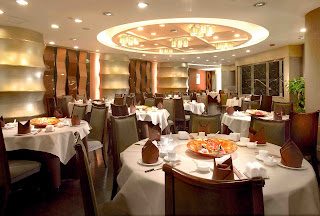How Do Restaurants Cater to Dietary Restrictions and Allergies
In today's diverse dining landscape, restaurants must cater to a wide range of dietary restrictions and allergies. Whether someone is following a specific diet for health reasons or has severe food allergies, the best restaurant Invercargill must provide options that accommodate these needs.
In this blog post, we will explore how restaurants cater to dietary restrictions and allergies, ensuring that everyone can enjoy a safe and satisfying dining experience.
1. Menu Transparency and Allergen Information
One of the first steps restaurants take to cater to dietary restrictions and allergies is to provide clear and comprehensive menu information. This includes specifying ingredients and highlighting common allergens such as nuts, dairy, gluten, and shellfish. By offering transparent and easily accessible allergen information, restaurants enable diners to make informed choices about what they can safely consume.
2. Customisation and Flexibility
The best restaurant Invercargill understands that each diner's dietary needs are unique. That's why many establishments offer customisation options and flexibility in their menu. This allows customers to request modifications to existing dishes or even create bespoke meals that suit their specific requirements. By offering flexibility, restaurants can accommodate a wide range of dietary restrictions and allergies without compromising on flavour or quality.
3. Separate Preparation Areas and Utensils
To prevent cross-contamination and ensure the safety of diners with food allergies, many restaurants have separate preparation areas and utensils for allergy-specific meals. This prevents allergens from coming into contact with ingredients that should be kept separate. By implementing strict protocols for handling and preparing allergen-free dishes, restaurants can give customers peace of mind and maintain a safe dining environment.
4. Collaboration with Customers and Chefs
The best restaurant Hamilton successfully caters to dietary restrictions and allergies and often engages in collaborative discussions with customers and chefs. By encouraging open communication, restaurants can better understand specific dietary needs or restrictions and work with their chefs to create suitable and delicious alternatives. This collaborative approach ensures that both the customer's needs and the restaurant's culinary expertise are taken into consideration.
5. Specialised Menus and Markings
Another way restaurants cater to dietary restrictions and allergies is by offering specialised menus or marking dishes that are suitable for specific dietary needs. For example, a restaurant might have a separate gluten-free menu or indicate vegetarian and vegan options. These specialised menus and markings make it easier for customers to identify dishes that align with their dietary requirements and avoid allergens.
6. Allergy-Friendly Cooking Techniques and Ingredients
Many of the best restaurant Hamilton have become proficient in using allergy-friendly cooking techniques and alternative ingredients to accommodate various dietary restrictions. For example, they may use plant-based substitutes for dairy or gluten-free flour for baking. By embracing these alternatives, restaurants can offer a wider range of options and flavours that cater to different needs without compromising on taste or quality.
7. Staff Training and Knowledge
To provide excellent service and ensure the safety of customers with dietary restrictions and allergies, restaurants invest in staff training and knowledge. Staff members are trained to understand different dietary needs, recognise allergens, and handle special requests appropriately. This allows them to address customer inquiries and provide accurate information concerning menu options, ingredients, and potential cross-contamination risks.
Conclusion: Dining Inclusivity and Enjoyment
The best restaurant Invercargill plays a vital role in catering to dietary restrictions and allergies, promoting inclusivity, and providing enjoyable dining experiences for all. Through menu transparency, customisation options, separate preparation areas, collaborative efforts, specialised menus, allergy-friendly techniques, and well-trained staff, restaurants can meet the diverse needs of their customers.
By prioritising the safety, nutrition, and satisfaction of every diner, restaurants create an environment where everyone can confidently and comfortably enjoy their meal. With a growing awareness of dietary restrictions and allergies, the importance of catering to these needs will only continue to increase in the culinary world.
So the next time you dine out, rest assured that many restaurants are taking strides to ensure that your dietary restrictions and allergies are considered, allowing you to savour a delicious and worry-free dining experience.


Comments
Post a Comment